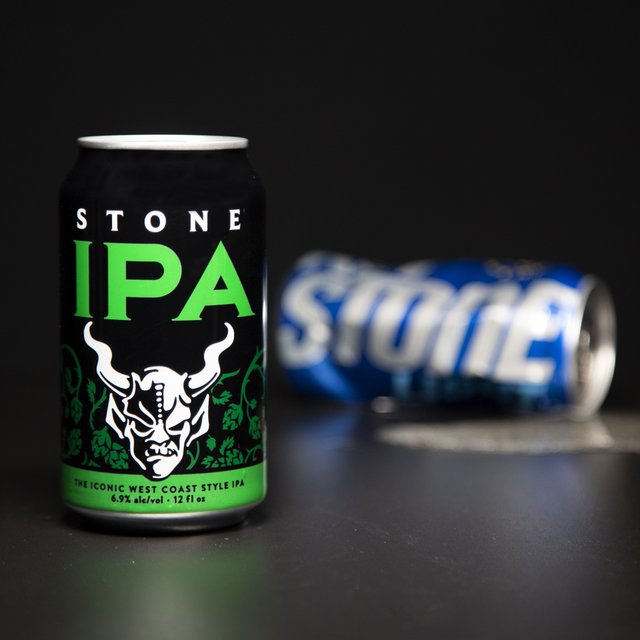
In late March, Stone Brewing Co. sent me a press release with big words reading “Court scores one for craft beer, finds that MillerCoors infringes on Stone brand, damages and injunctive relief to go forward to trial.” That sounded pretty positive, but soon I realized the situation is only moderately positive.
On Tuesday, March 26, a court issued an order regarding Stone’s preliminary injunction motion against one of the world’s largest beer makers — denying it. While it is important to note preliminary injunction hearings certainly do not determine final trial outcomes, they do provide an interesting insight into the strength and challenges of a case.
According to the aforementioned Stone press release, the court did confirm “Stone’s mark to be commercially strong and recognizable,” deserving of “strong protection.” Stone filed a lawsuit against MillerCoors some 14 months ago, alleging that its rebranded Keystone Light product infringed on Stone’s trademark. From the press release:
What does this positive ruling mean for Stone and craft beer? It means that MillerCoors’ Keystone cans are likely to confuse consumers, infringe on Stone’s trademark, and will likely be forced to undergo a rebrand after the case goes to trial. In short, Stone is that much closer to protecting its good name, reputation and brand integrity.
I wasn’t so sure, so I reached out to the person I knew would understand the importance of denying a preliminary injunction for a trademark
— Matthew McLaughlin — 15-year alcohol regulatory attorney vet, executive director of the Mississippi Brewers Guild and 2017 winner of the FX Matt Defense of the Industry Award by the Brewers Association. What was McLaughlin’s take on all this, and how can the rest of us learn from it?
Suggestion: Attend CBB‘s free webinar — Bottling Your Brand: What Craft Brewers Need to Know about Trademark Protection by clicking right here.
McLaughlin’s insights
I am not surprised the judge denied the Stone motion for a preliminary injunction seeking to enjoin MillerCoors from using “Stone” in conjunction with Keystone beer products during the period of time prior to the case being heard on the merits. Generally speaking, preliminary injunctions are extraordinary forms of relief that are only granted if a movant, in this case Stone, can demonstrate that there is a likelihood of success on the merits and that irreparable harm will occur without the granting of the injunction.
In this case, Judge Roger Benitez, a United States District Judge for the Southern District of California, denied Stone’s motion for a preliminary injunction. It is important to note preliminary injunction hearings are not determinative of trial outcomes, but they do provide an interesting insight into the merits of the case. In this situation, Stone has alleged that MillerCoors use of “Stone” in conjunction with Keystone products infringes on the trademark rights that Stone possess in a federally registered mark. And while this is only a preliminary injunction case and not a trial on the merits, the judge in considering whether to grant the preliminary injunction must nonetheless make some baseline determination of the likelihood of Stone’s success. Put another way, the judge is effectively ruling on whether Stone’s trademark infringement claim has any merit.
From a theoretical perspective, Stone Brewing Co. should not have to deal with situations like these. Well, we do not live in a theoretical world and, in this case, Judge Benitez ruled that Stone’s trademark infringement claim against MillerCoors is only moderately strong.
In order for Stone to prevail on its trademark infringement claim, it must prove two things: (1) it has a protectable interest in the mark, and (2) that MillerCoor’s use of the mark is likely to cause consumer confusion. Because Stone has a federally registered mark with the United States Patent and Trademark Office that has matured into an incontestable mark, Judge Benitez appropriately ruled that Stone satisfied the first prong.
Next, Judge Benitez turned to the eight factors that the Ninth Circuit applies to determine whether there is a likelihood of consumer confusion: (1) the strength of the mark, (2) the proximity of goods, (3) the similarity of the marks, (4) the evidence of actual confusion, (5) marketing channels used, (6) the type of goods and the degree of care likely to be exercised by the purchase, (7) the defendant’s intent in selecting the mark and (8) the likelihood of expansion of the product lines.

As a craft beer geek and as a lawyer that counsels breweries on trademark matters, this case evokes antagonist emotions with me. In my craft beer lovers mind, it is unimaginable that consumer confusion could be present when looking at Stone products compared to Keystone (MillerCoors) products. Personally, I have zero problem distinguishing between Stone Delicious IPA and the yellow tinted water MillerCoors is passing off as beer through Keystone. But the consumer confusion analysis in these situations is not couched solely in terms of confusion amongst, dare I say, beer snobs. It is consumer confusion by individuals that simply drink beer. So, the question is whether or not a consumer when asking for a “Stone beer” is intending to treat him or herself to the delicious hoppiness of a Stone IPA or simply wants to drink some low alcohol water.
The other area of tension for me in these cases is the technical and theoretically objective rules that apply to federally registered trademarks. In this case, Stone Brewing Co. did what it was supposed to do with its mark. It cleared the mark. It registered the mark. It has monitored and policed the mark, and it has filed appropriate affidavits at requisite time periods to make the mark incontestable. From a theoretical perspective, Stone Brewing Co. should not have to deal with situations like these. Well, we do not live in a theoretical world and, in this case, Judge Benitez ruled that Stone’s trademark infringement claim against MillerCoors is only moderately strong.
It is going to be interesting to see how this case unfolds. Based on Judge Benitez’s ruling, he clearly believes Stone is going to have some issues in proving all of the criteria that must be considered for consumer confusion. However, a plaintiff need not prove all of these factors. Some of these factors, depending on the facts and circumstances, may be given greater weight than others. At the end of the day, MillerCoors survives a preliminary injunction hearing and Stone now knows, on some level, where the judge stands on certain claims they have pled in their original complaint.
For more legals insights and services from McLaughlin PC, click this link or e-mail Matthew directly at [email protected].





[…] Cold case: Stone’s trademark infringement claim against MillerCoors is only moderately strong Craft Brewing Business […]